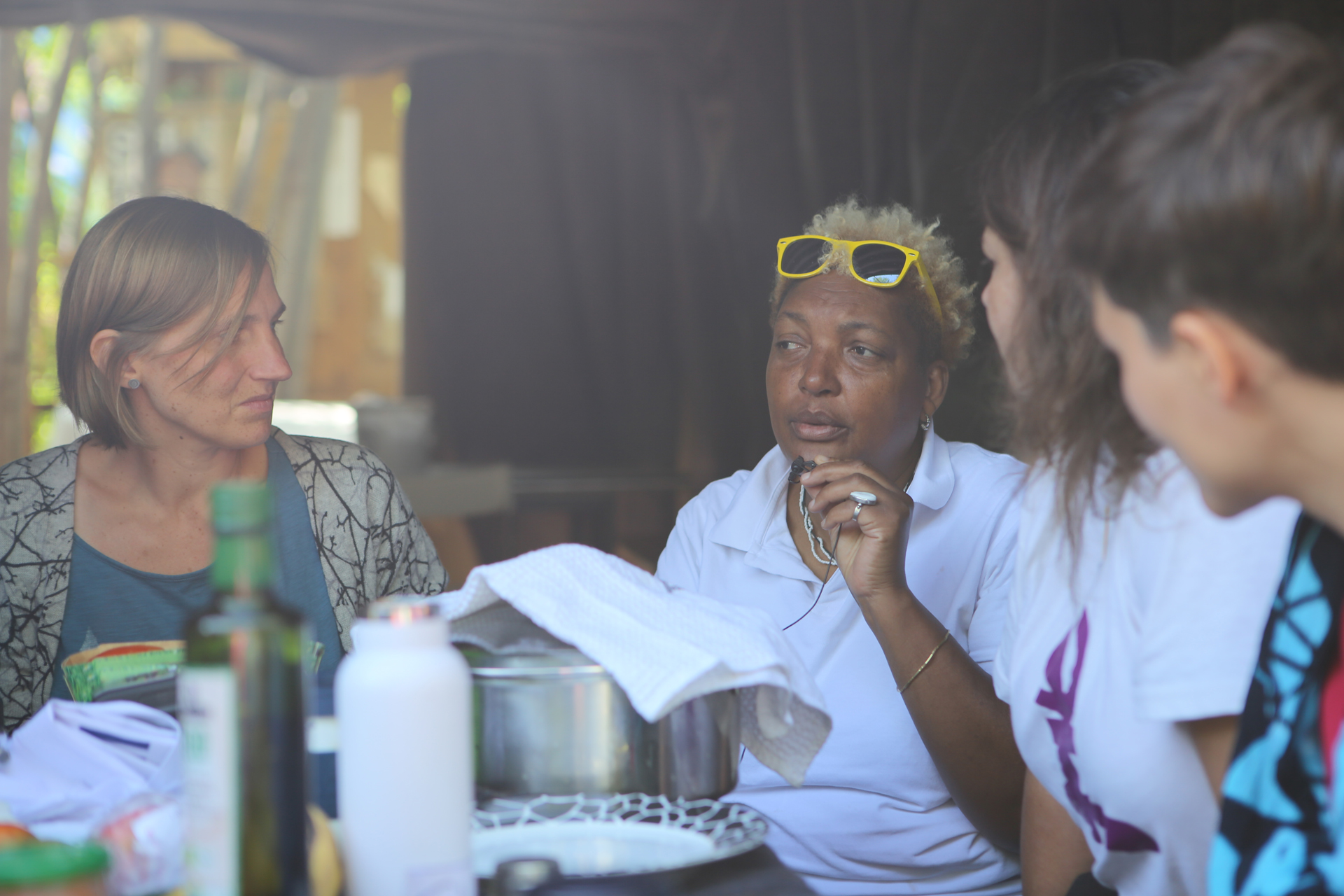TERRITORIES OF KNOWLEDGE
April + September 2024, Artistic/transmedia research residency by artist, filmmaker and researcher Barbara Marcel and transmedia journalist and researcher Camila Nobrega, between Belém do Pará (Brazil) and Berlin (Germany) in collaboration with Spore Initiative.
April + September 2024, Artistic/transmedia research residency by artist, filmmaker and researcher Barbara Marcel and transmedia journalist and researcher Camila Nobrega, between Belém do Pará (Brazil) and Berlin (Germany) in collaboration with Spore Initiative.
During a research residency in the Brazilian state of Pará, followed by further research in Germany, the project begins by investigating the preparation processes of different local and international civil society groups for hosting the UN Climate Conference COP30, which will take place in 2025 for the first time in the Amazon region. The project takes as its starting point the COP, its possibilities for encounters for situated learning and the promotion of critical debates of global repercussions, in order to reflect collectively on issues such as socio-environmental and climate justice.
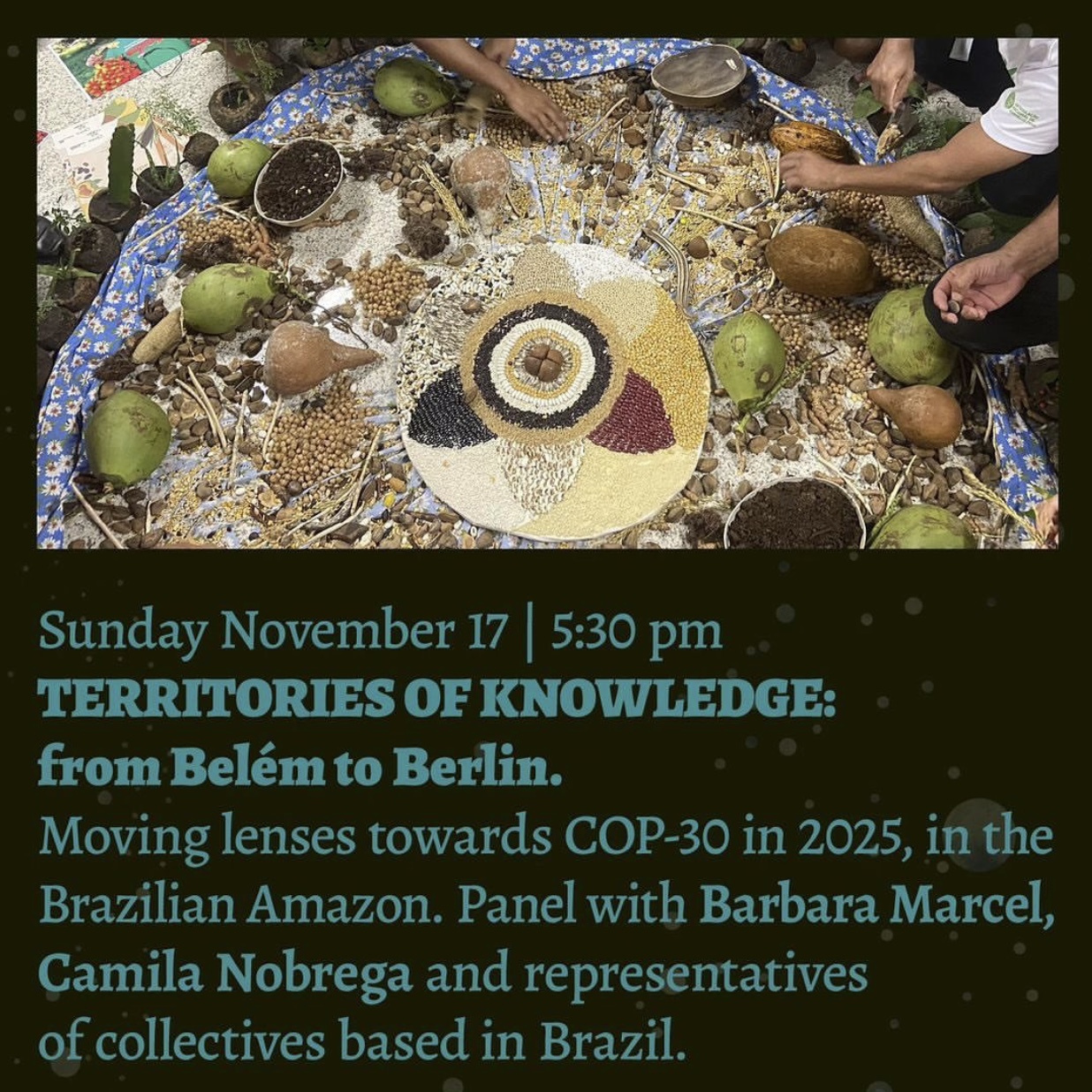
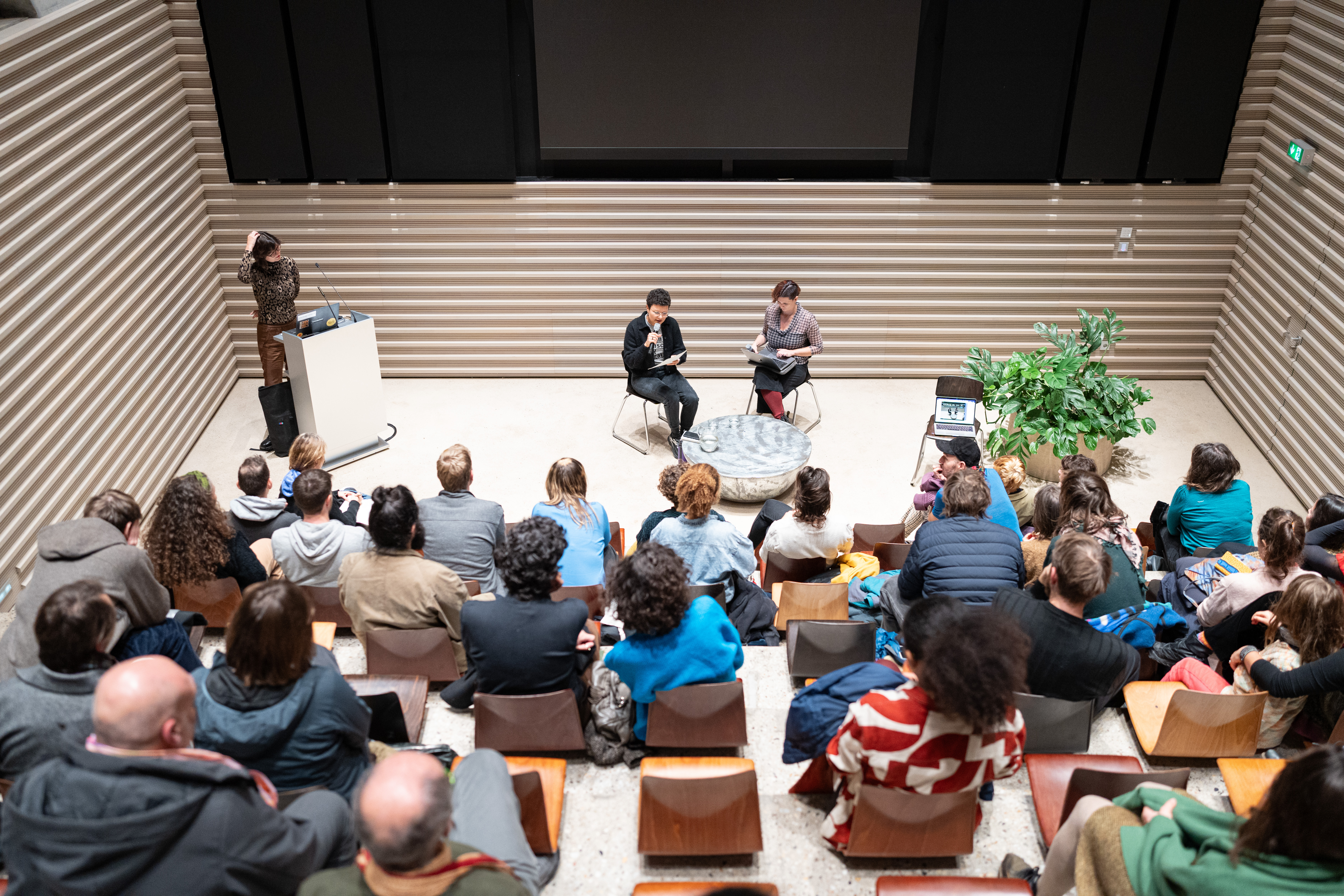
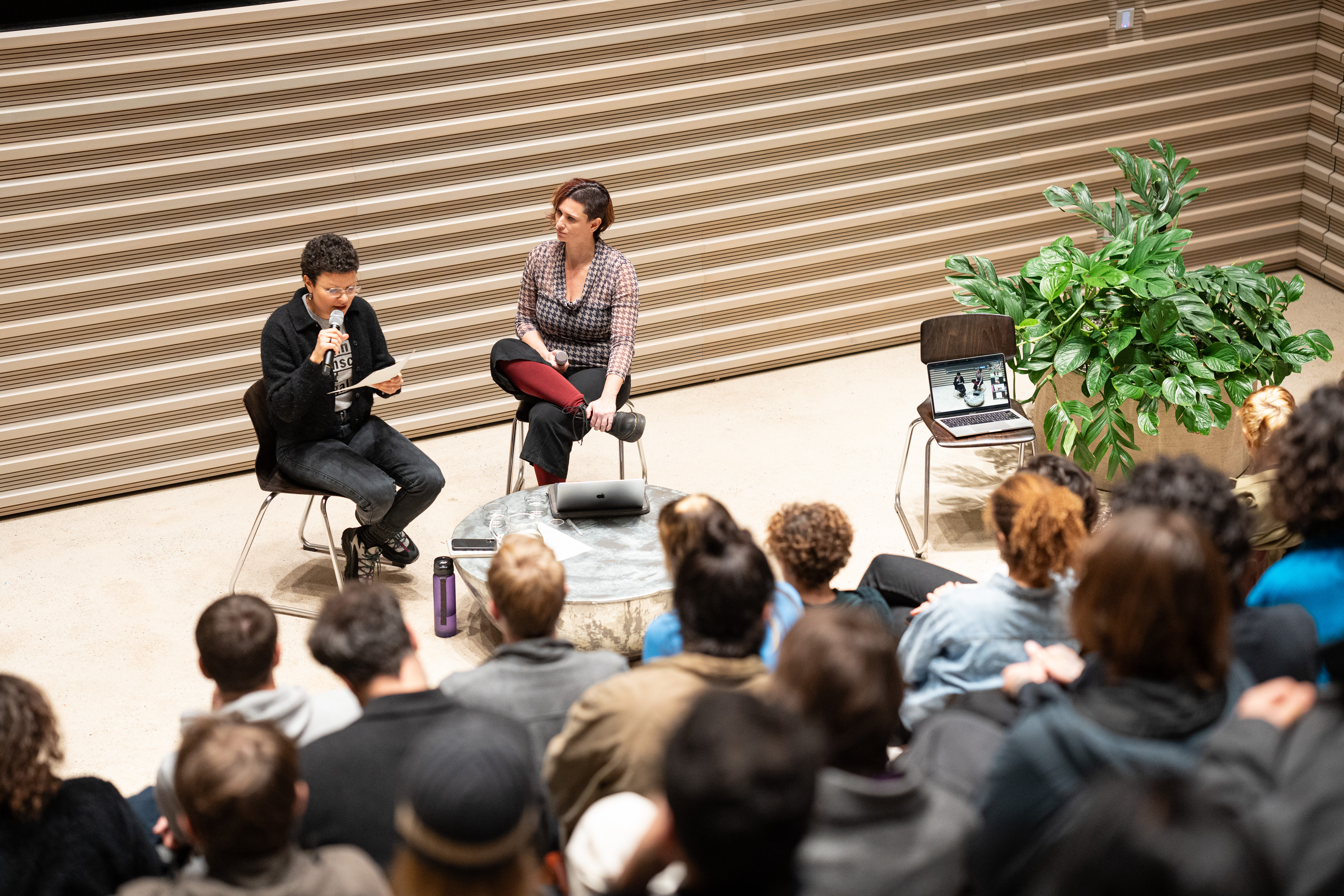

The Amazon is a key territory in the history of colonial processes in the formation of a modern world system based on the exploitation of naturecultures, subjugating peoples and species that for centuries have co-cultivated codependent relationships, especially in the global south. Brazil is the country with the largest area of the Amazon, equivalent to around 60% of the largest tropical forest on the planet. The importance of respecting the territories and peoples in the region, as well as the need of unveiling transnational power structures that reproduce colonialities, is key to the debate on global warming and climate change.
For all these reasons, the research follows the preparations for COP30 and international debates about practices for possible futures of the planet with special attention to contemporary challenges, including conflicts resulting from the implementation of more contemporary developmentalist megaprojects, illegal logging, mining, land grabbing, among other transnational processes.
Based on their own methods of artistic research and investigative journalism, the researchers aim to contribute to spaces for knowledge exchange, starting from the notions of territory, land, water and conviviality – four words that carry different meanings in different contexts. Therefore, the idea is to give visibility to ongoing processes in the local context and create new spaces beyond borders between Brazil and Germany, revealing conflicts but also opening up possibilities for collaboration based on the understanding and respect for different positionalities. The research will be conducted in dialogue with Indigenous, quilombolas, riverside and other Amazonian communities, especially networks and collectives of artists, journalists, researchers and environmentalists in the region, as well as groups working transnationally unveiling past and ongoing colonialities.
The project is supported by Spore Initiative, which facilitates cultural projects at the intersection of climate justice, ecological regeneration, and education, in dialogue with earth protectors in the Global South and the Global North.
Link to the project at Spore.
COMMON IMAGINARIES
4th Research Seminar on Art and City_DESILHA 2024, Graduate Program in Visual Arts at the School of Fine Arts of the Federal University of Rio de Janeiro. Proposal: Livia Flores, André Leal, Barbara Marcel and Raquel Versieux. Organization and production: Livia Flores, André Leal, Barbara Marcel and Giovanni Festa.
4th Research Seminar on Art and City_DESILHA 2024, Graduate Program in Visual Arts at the School of Fine Arts of the Federal University of Rio de Janeiro. Proposal: Livia Flores, André Leal, Barbara Marcel and Raquel Versieux. Organization and production: Livia Flores, André Leal, Barbara Marcel and Giovanni Festa.
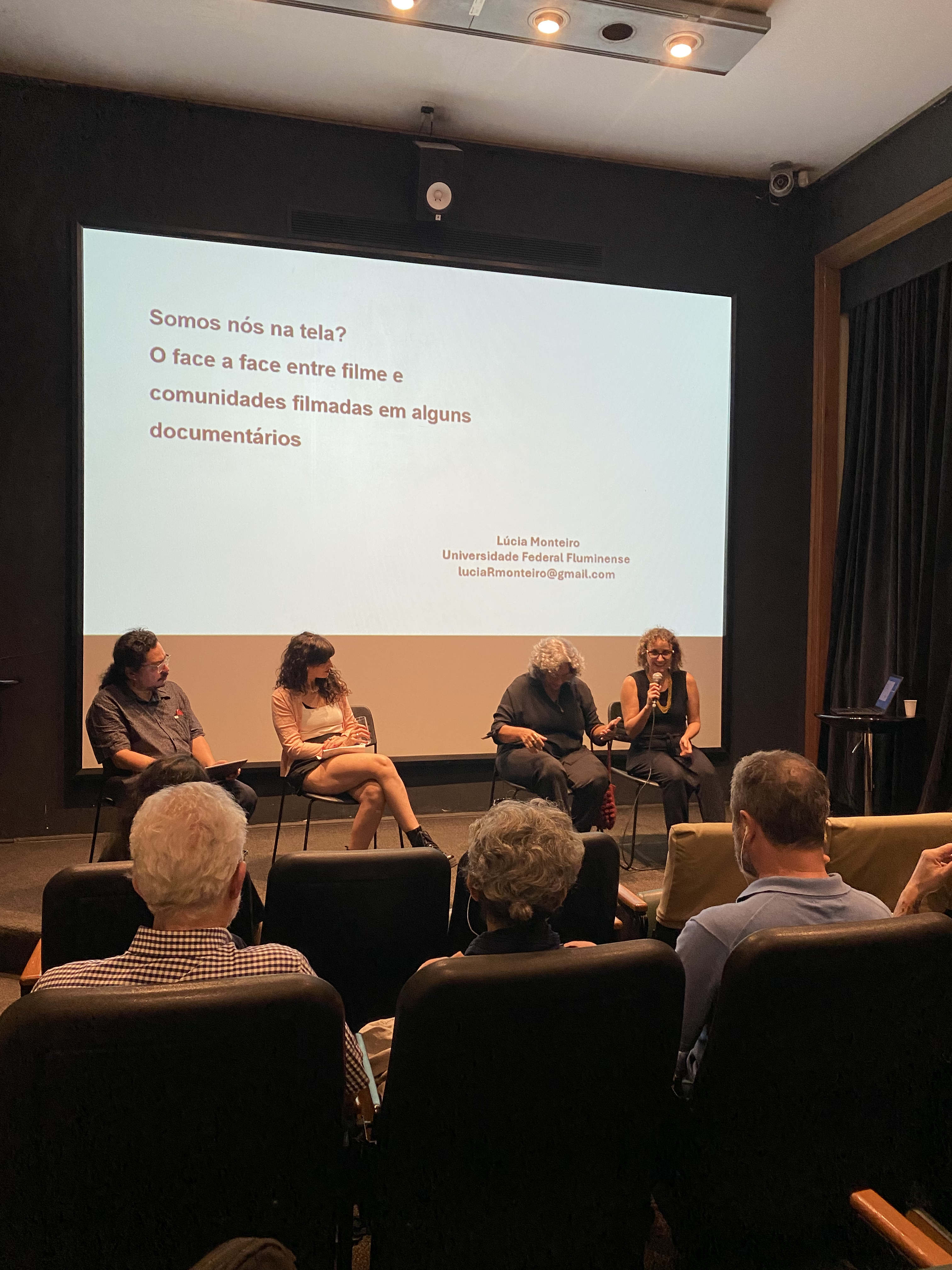
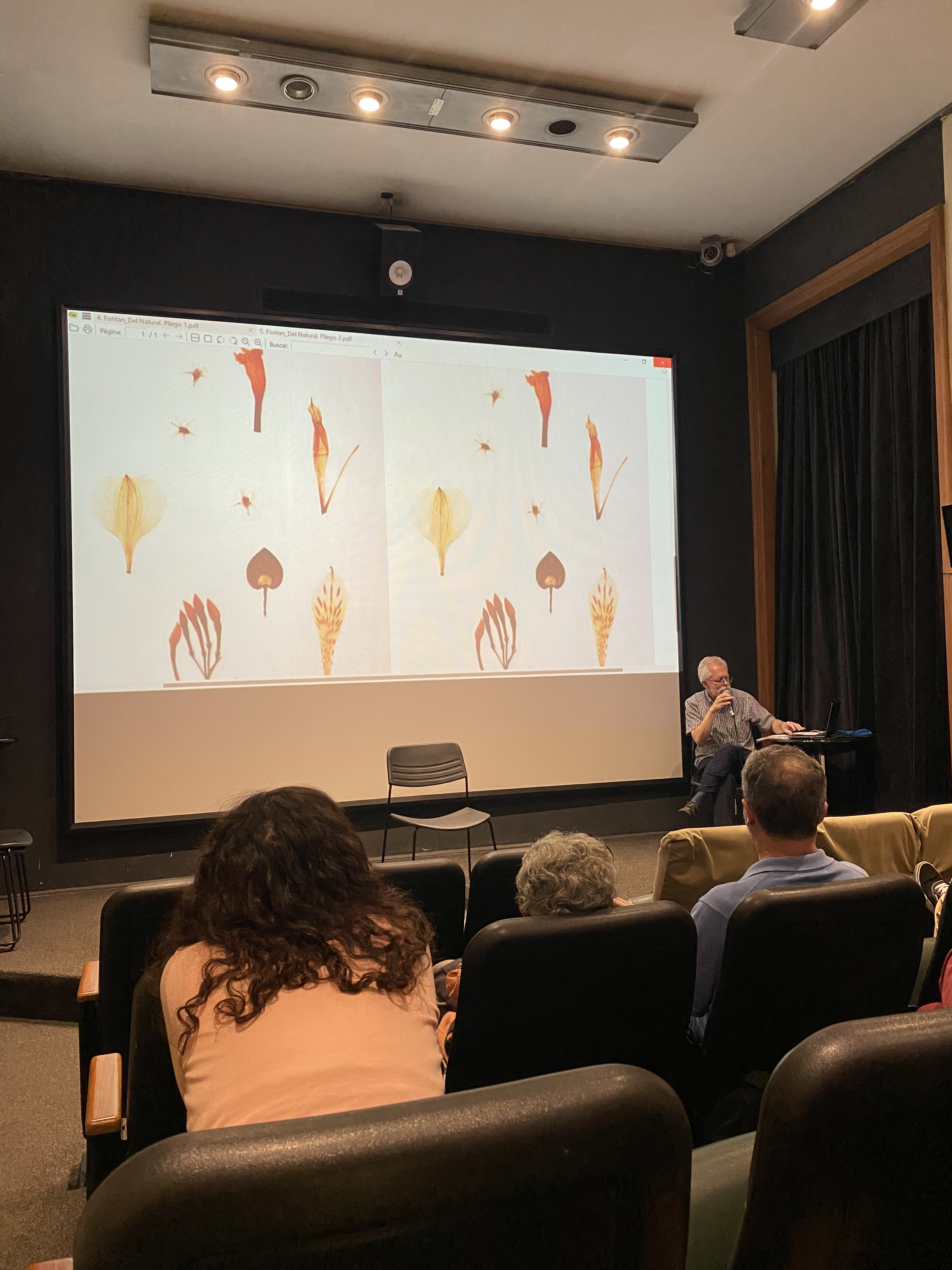
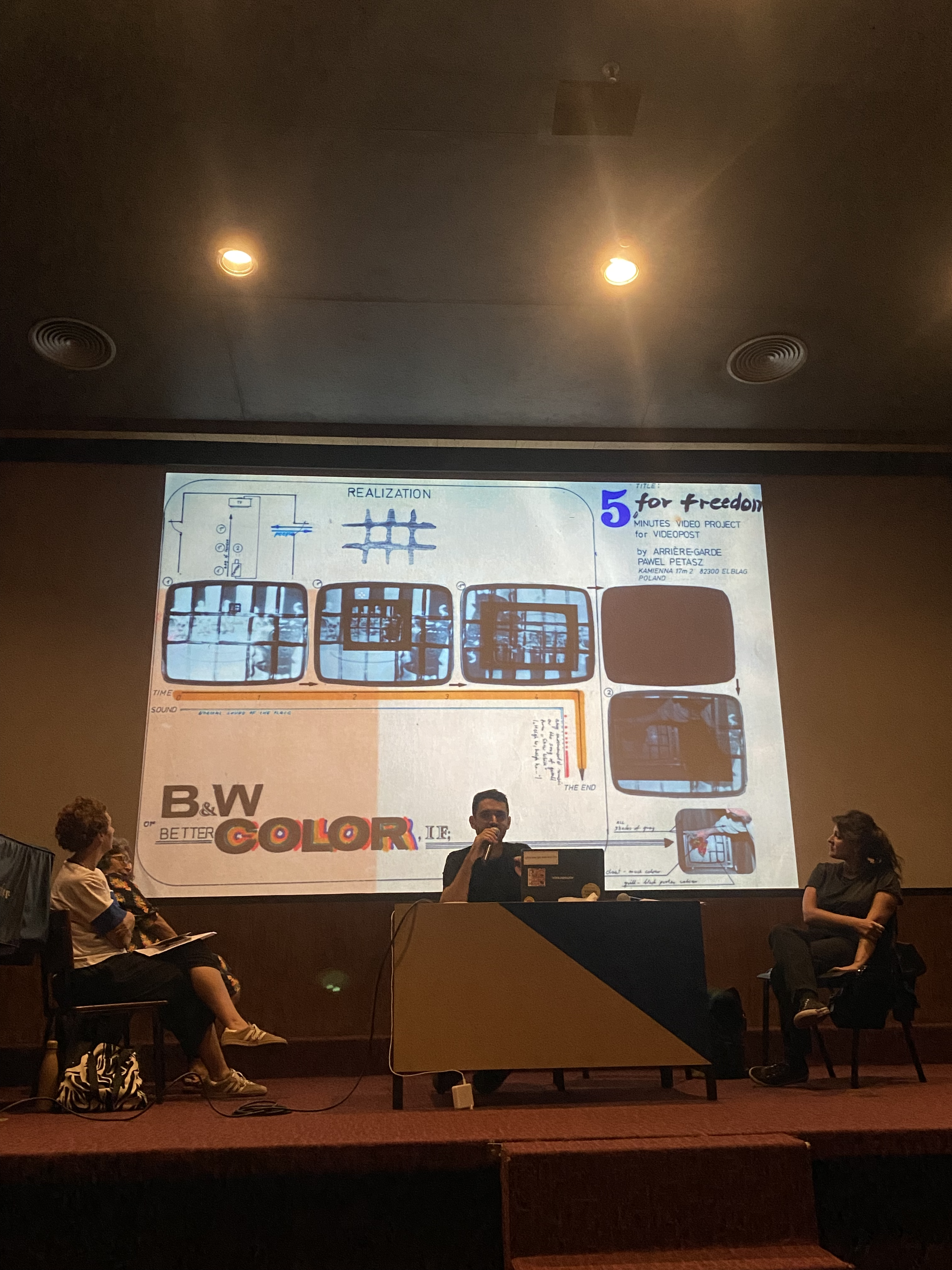
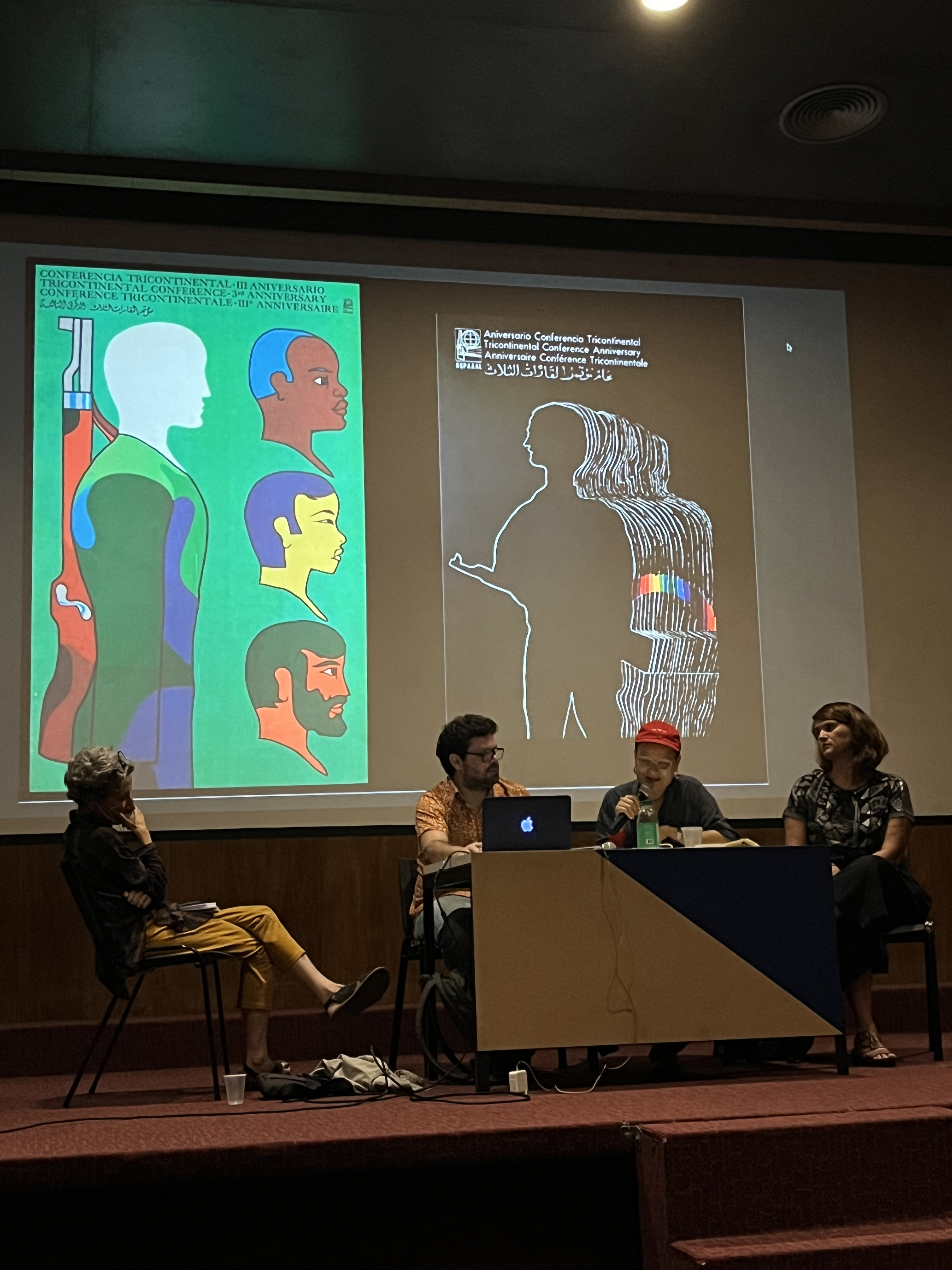
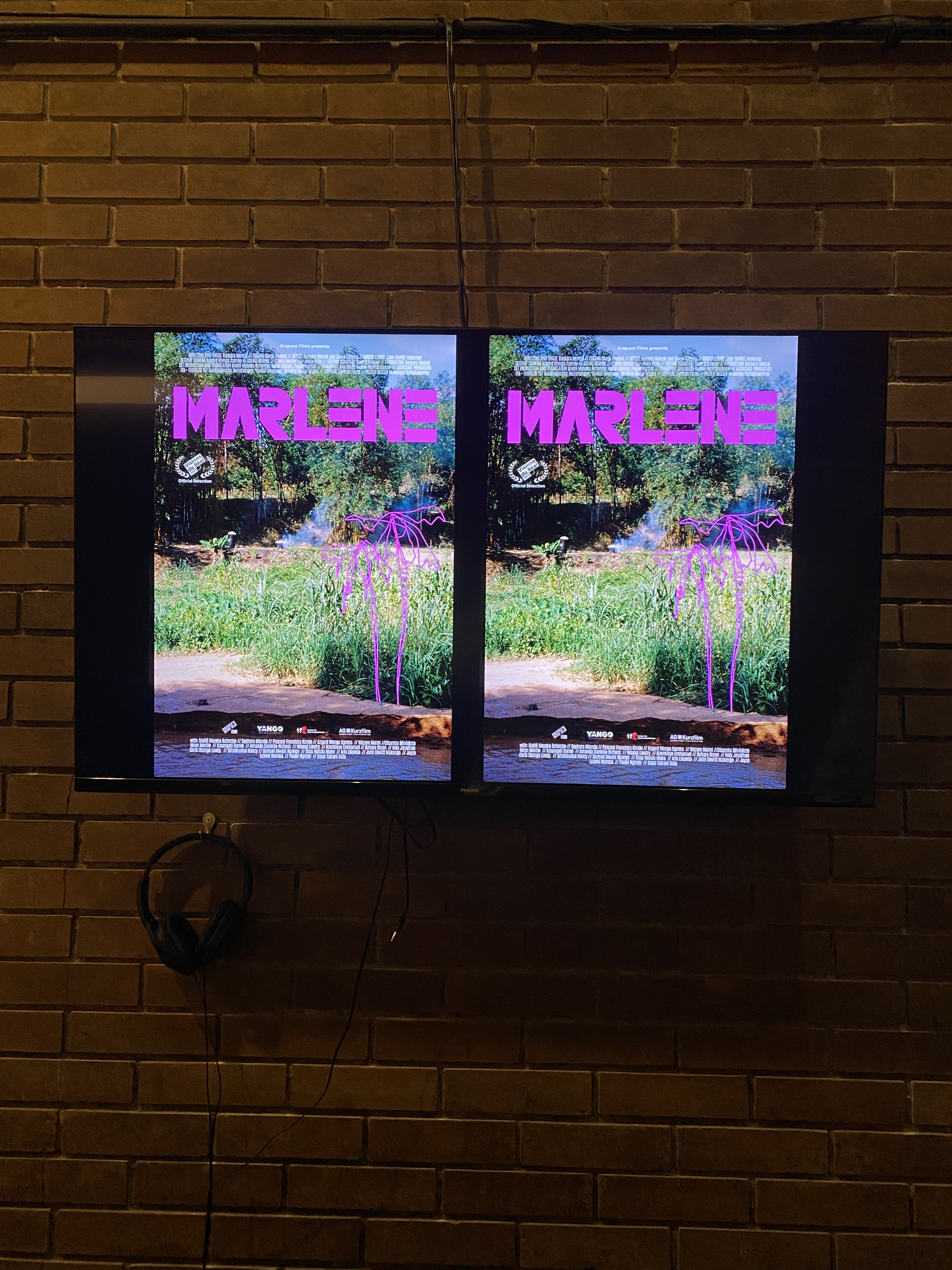
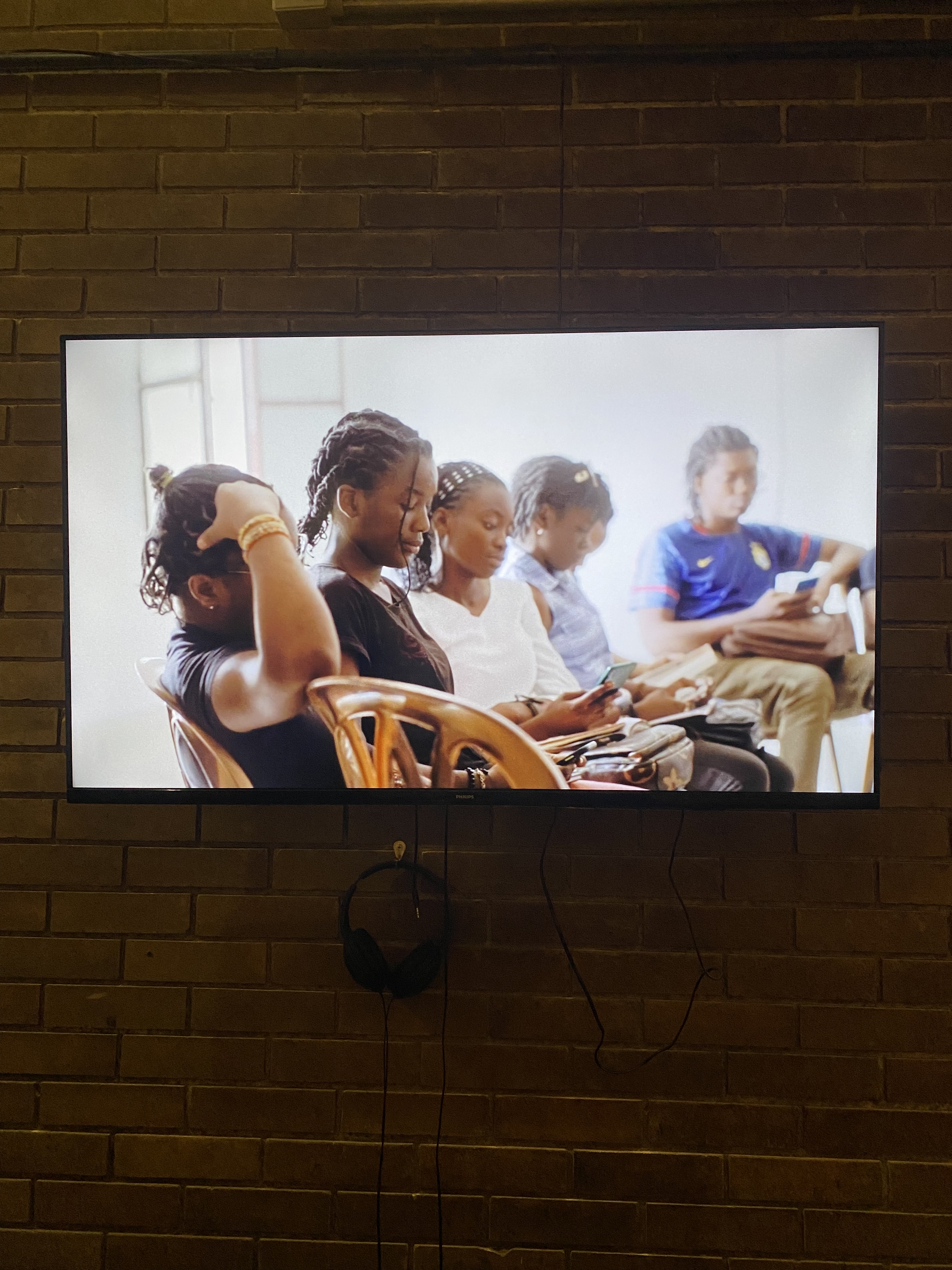
This colloquium brings together researchers in art, philosophy, literature and cinema from Brazil, Argentina, Chile, Colombia and Italy, with a focus on Latin American experiences. Held in person at the Centro de Cultura da Justiça Federal on May 21 and 28 and at the Cinemateca do Museu de Arte Moderna from May 22 to 24, both in the city of Rio de Janeiro, the program includes an exhibition of films related to the research presented. Proposed by artists and researchers from the research group Atotality, Common Imaginaries is organized by the Postgraduate Program in Visual Arts of the School of Fine Arts of the Federal University of Rio de Janeiro and is funded by Capes (Proex and PrInt).
SINEMA TRANSTOPIA
June 2023. Knowledge Ties #3: Amor Rojo. Moderation of the talk with Rike Frank and Dora Garcia after the exhibition of the film Amor Rojo, by Dora García. Berlin, Germany.
Knowledge Tie is a collaboration between the Berlin Artistic Research Grant Programme and SİNEMA TRANSTOPIA. The public programme contributes to the ongoing unfolding of research-based practices in the arts, their foundations and forms of mediation. The programme thus responds to the growing importance of art for knowledge in society and independent forms of knowledge formation.
The 3rd event included the screening of Amor Rojo, a film by Dora García, followed by a conversation with Rike Frank moderated by fellow Barbara Marcel.
Click here for more information on the film and the event.
June 2023. Knowledge Ties #3: Amor Rojo. Moderation of the talk with Rike Frank and Dora Garcia after the exhibition of the film Amor Rojo, by Dora García. Berlin, Germany.
Knowledge Tie is a collaboration between the Berlin Artistic Research Grant Programme and SİNEMA TRANSTOPIA. The public programme contributes to the ongoing unfolding of research-based practices in the arts, their foundations and forms of mediation. The programme thus responds to the growing importance of art for knowledge in society and independent forms of knowledge formation.
The 3rd event included the screening of Amor Rojo, a film by Dora García, followed by a conversation with Rike Frank moderated by fellow Barbara Marcel.
Click here for more information on the film and the event.
FESTIVAL PROTAGONISTAS AT HAU
2023, Berlin, Germany. Festival ¡PROTAGONISTAS! Beyond Equality: Feminisms Reclaiming Life - An Internationalist Gathering. Curated by Firoozeh Farvardin, Barbara Marcel, Camila Nobrega, Bahar Oghalai, Bafta Sarbo, Elif Sarican and Margarita Tsomou. At HAU - Hebbel am Ufer Theater.
2023, Berlin, Germany. Festival ¡PROTAGONISTAS! Beyond Equality: Feminisms Reclaiming Life - An Internationalist Gathering. Curated by Firoozeh Farvardin, Barbara Marcel, Camila Nobrega, Bahar Oghalai, Bafta Sarbo, Elif Sarican and Margarita Tsomou. At HAU - Hebbel am Ufer Theater.
Co-curatorial work for the Festival ¡PROTAGONISTAS! Beyond Equality: Feminisms Reclaiming Life - An Internationalist Gathering at HAU, Berlin, and moderation of the panel discussion “Against Capitalism and its Extractivisms: From Community Feminism to Territorial Cuerpo-Tierra from Territorial Community Feminism and Agroecology in Abya Yala (Latin America)” With: Lorena Cabnal, Carmen Cariño, Miriam Nobre, Louise Wagner / Moderation: Barbara Marcel, Camila Nobrega.


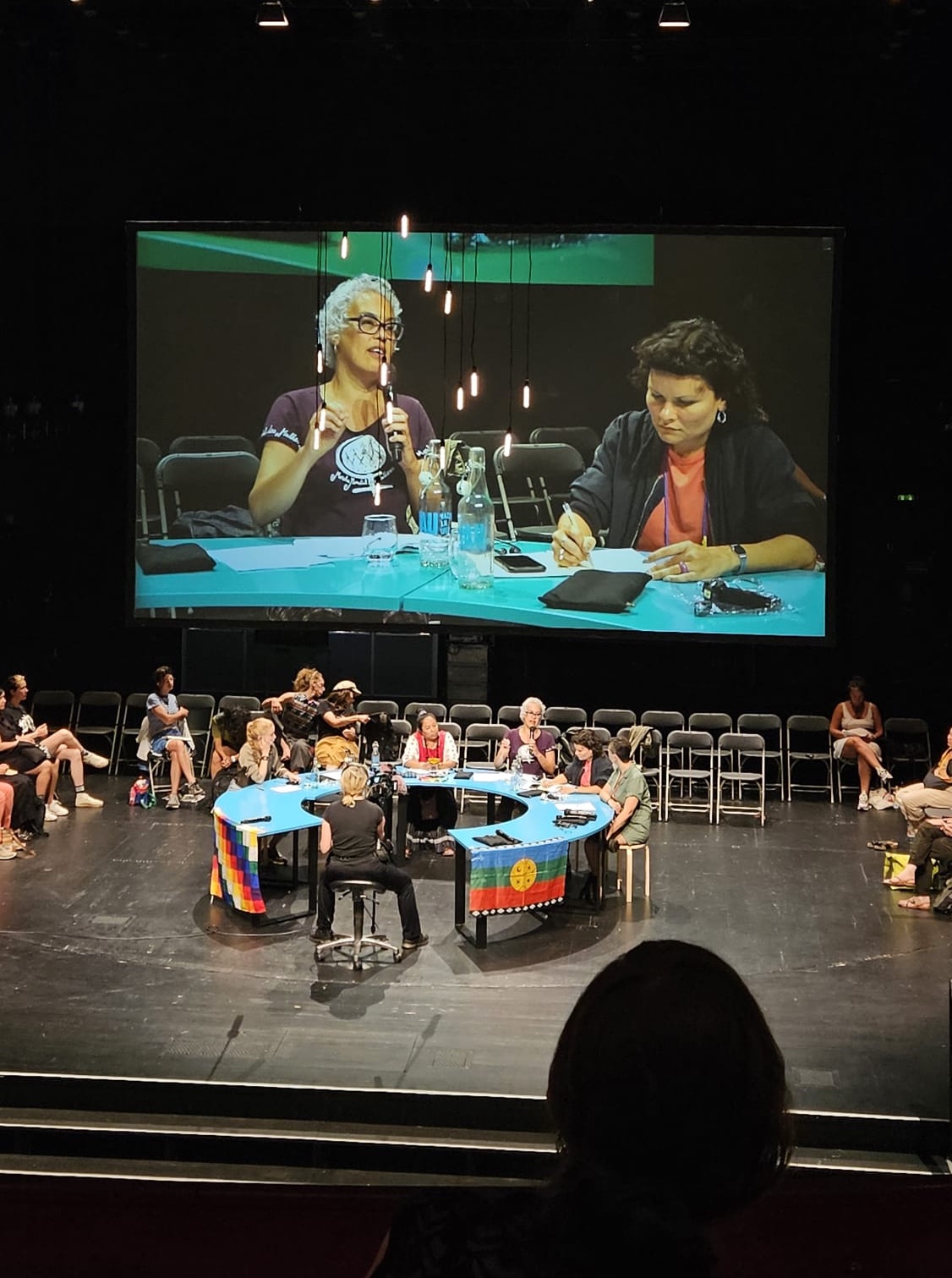

SITUATED KNOWLEDGES, GLOBAL ECOLOGIES
2-4.09.2019 at NGBK and Prinzessinnengarten Berlin.
2-4.09.2019 at NGBK and Prinzessinnengarten Berlin.
Situated knowledge / Global ecologies: a collaborative Walkshop Ramble was a three-day project on social-ecological justice, initiated by artist Barbara Marcel and journalist Camila Nóbrega, which took place between 2 and 4 September in the Prinzessinnengarten space in Berlin. The project brought together scientists and fellow scholars from the Heinrich-Böll Foundation with environmental activists, journalists and artists, for an experimental format of knowledge exchange. The main themes were guided by different understandings of what has been called ecology and the global dynamics of knowledge production and narratives about the territories, seeking decolonial and antipatriarchal views.
As a closing debate in collaboration with the project »Licht Luft Scheiße. Perspektiven auf Ökologie und Moderne«, the dialogue was open to the public, with the participation of the workshop participants, and the presence of the Brazilian urban farmer and researcher Sílvia Baptista, representative leader of the struggle for land rights in Brazil. The debate was mediated by Barbara Marcel and Camila Nóbrega, focusing on the ongoing narratives about social-environmental conflicts in Brazil and the situation of struggle of diverse social movements and forest peoples, not only for the right to land, but for the right to livelihoods, community practices and common imaginaries. From a local-global perspective and reflecting on what was produced throughout the Workshop, the aim was to discuss asymmetries related to land rights and, simultaneously, to the production of discourses. The role of patriarchy and coloniality in organizing bodies and territories were in the core of the discussion.
